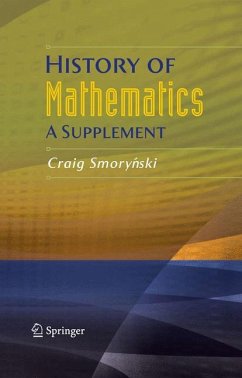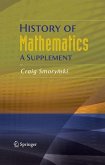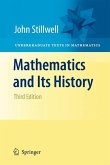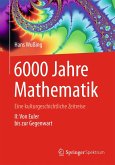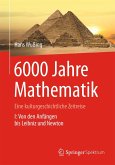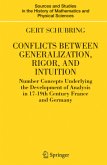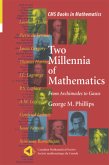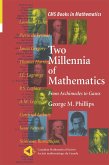1 An Initial Assignment I haven't taught the history of mathematics that often, but I do rather like the course. The chief drawbacks to teaching it are that i. it is a lot more work than teaching a regular mathematics course, and ii. in American colleges at least, the students taking the course are not mathematics majors but e- cation majors- and and in the past I had found education majors to be somewhat weak and unmotivated. The last time I taught the course, however, themajorityofthestudentsweregraduateeducationstudentsworkingtoward their master's degrees. I decided to challenge them right from the start: 1 Assignment. In An Outline of Set Theory, James Henle wrote about mat- matics: Every now and then it must pause to organize and re?ect on what it is and where it comes from. This happened in the sixth century B. C. when Euclid thought he had derived most of the mathematical results known at the time from ?ve postulates. Do a little research to ?nd as many errors as possible in the second sentence and write a short essay on them. Theresponsesfarexceededmyexpectations. Tobesure,someoftheund- graduates found the assignment unclear: I did not say how many errors they 2 were supposed to ?nd. But many of the students put their hearts and souls 1 MyapologiestoProf. Henle,atwhoseexpenseIpreviouslyhadalittlefunonthis matter. I used it again not because of any animosity I hold for him, but because I was familiar with it and, dealing with Euclid, it seemed appropriate for the start of my course.
From the reviews:
"This is very personal book, full of personal asides and footnotes that reveal the author's thought process. It's also an argumentative book ... which made me want to argue back. I kept reading. ... this is an interesting book. ... I do think anyone who teaches history of mathematics can find useful things here." (Fernando Q. Gouvêa, MathDL, December, 2007)
"This volume ... aims to discuss just a few topics from pre-20th-century mathematics, but to address them in some mathematical and historical detail. ... The book includes an appendix offering a dozen historical/mathematical projects. Overall, an interesting volume. Summing Up: Recommended. Upper-division undergraduates through researchers/faculty." (S. J. Colley, CHOICE, Vol. 45 (11), August, 2008)
"This is very personal book, full of personal asides and footnotes that reveal the author's thought process. It's also an argumentative book ... which made me want to argue back. I kept reading. ... this is an interesting book. ... I do think anyone who teaches history of mathematics can find useful things here." (Fernando Q. Gouvêa, MathDL, December, 2007)
"This volume ... aims to discuss just a few topics from pre-20th-century mathematics, but to address them in some mathematical and historical detail. ... The book includes an appendix offering a dozen historical/mathematical projects. Overall, an interesting volume. Summing Up: Recommended. Upper-division undergraduates through researchers/faculty." (S. J. Colley, CHOICE, Vol. 45 (11), August, 2008)
Aus den Rezensionen: "... Craig Smorynski hat ein 'Supplement' zu einer Vorlesung über die Geschichte der Mathematik vorgelegt, mit dem er sowohl das kritische Verständnis seiner Hörer schulen möchte, wie auch an ... ausgewählten Beispielen die Mathematik im Detail beschreiben will. ... Mir gefällt der Stil des Autors und seine Auswahl der Inhalte ganz außerordentlich. ... Man findet hier tatsächlich das Material, dass man in einem Überblickskurs verwenden kann, um partiell etwas tiefer zu bohren. ... Insgesamt ist Smorynskis Buch ein wertvolles und lesbares Addendum ... zur mathematikhistorischen Literatur ..." (Thomas Sonar, in: Mathematische Semesterberichte, 31. Jan. 2009, Vol. 156, S. 134 f.)

